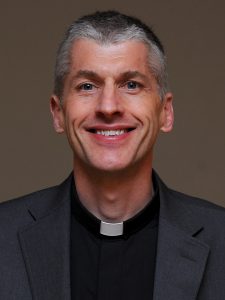 By Pastor Craig Pederson
By Pastor Craig Pederson
Two months ago the first of our two children was confirmed in the Lutheran faith. Our son Evan had successfully navigated three years of large-group classes, small-group gatherings, service projects, and the obligatory “faith statement” to complete the requirements for his confirmation program. On a lovely May Sunday morning, Evan then publicly affirmed the promises of his baptism along with 42 other young people in front of friends, family, and the gathered people of God.
Evan would not say that his confirmation experience was “the best ever” or “the worst ever” – as teen exaggeration sometimes goes. When asked on the way home from church that day how he felt about being confirmed, he said, “Alright. … I guess I learned a few things.” (He has also learned the art of the Scandinavian understatement.)
“‘Going it alone’” is out; “‘we’re in this together’” is in!
Ultimately Evan felt his confirmation was not an end point, but a beginning framework for the rest of his life. And I was reminded of his beginnings, and the privilege I had to seal him with the Holy Spirit and mark him with the cross of Christ when I baptized him 15 years ago.
It also got me thinking about how much has changed in the life of the larger church over the past 15 years. For example, the church I served (St. Paul’s in Northeast Minneapolis), in which Evan and our daughter Nora (two years younger) were baptized, is no longer a Lutheran church. The building was sold to a nondenominational church when the former St. Paul’s consolidated with two other Lutheran congregations in our neighborhood and started a new congregation (Grace Northeast). Grace Northeast has since moved twice and has adapted its mission and purpose to fit the assets and needs of its neighborhood.
CHURCHES ARE OFTEN seen as places that are slow to adapt and change. And we need not look very far to see examples of churches that seem “stuck.” But the longer I serve in my current position with the synod, the more I see churches who are honestly and realistically looking at how they might change in order to serve God more faithfully and effectively in their contexts.
Fifteen years ago at the former St. Paul’s, we engaged in about a year and a half of difficult conversations about membership and staffing and building and finances. That was followed by several months of exciting conversations about what we might do together with our neighboring churches. These types of conversations are happening with far greater frequency and speed these days. “Going it alone” is out; “we’re in this together” is in!
In the past six months, two different pairs of churches in our synod culminated their conversations with the sense that God was calling them to consolidate and “be the church” together: Christ English and River of Life in North Minneapolis are now “Christ the River of Life Lutheran Church,” and Prince of Peace and Wooddale in St. Louis Park have joined together and will determine their new name soon. I know of at least two other groups of churches who are discussing their shared futures together.
NOW I DON’T AT ALL MEAN to imply that the ideal for change in the church is consolidation. That is only one outcome of change and adaptation. There are many other examples of churches who have formed invigorating ministry partnerships while retaining and even growing their own identities as faith communities.
The point is that when churches openly and actively explore new ways to do ministry, the Holy Spirit often presents possibilities never considered before.
“When we affirm our baptism, we don’t always know what will happen next!”
When we affirm our baptism, we don’t always know what will happen next; we die with Christ and are raised to new life and new possibilities. That goes for us as individual children of God, and for us as the church together.
My wife Lisa and I were so grateful that Evan stuck with the confirmation program, even during those times when he didn’t fully buy in to the whole faith/Jesus/death/resurrection narrative. Now he’s open to how his faith and understanding might change and adapt in the future.
How is your church open to change and adaptation as you affirm your baptismal call together as the people of God? May the Spirit lead and guide us all into new life and new possibilities!

